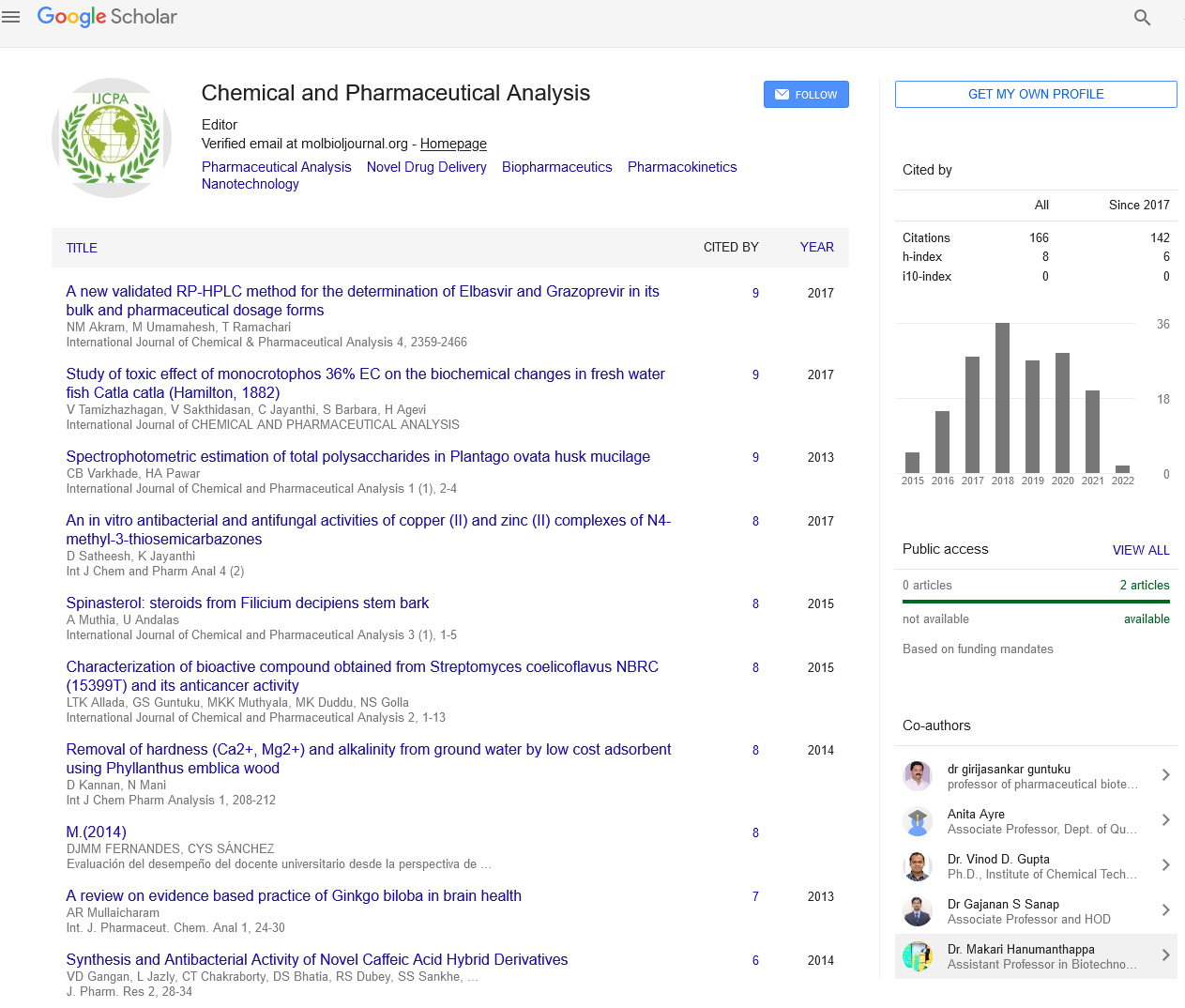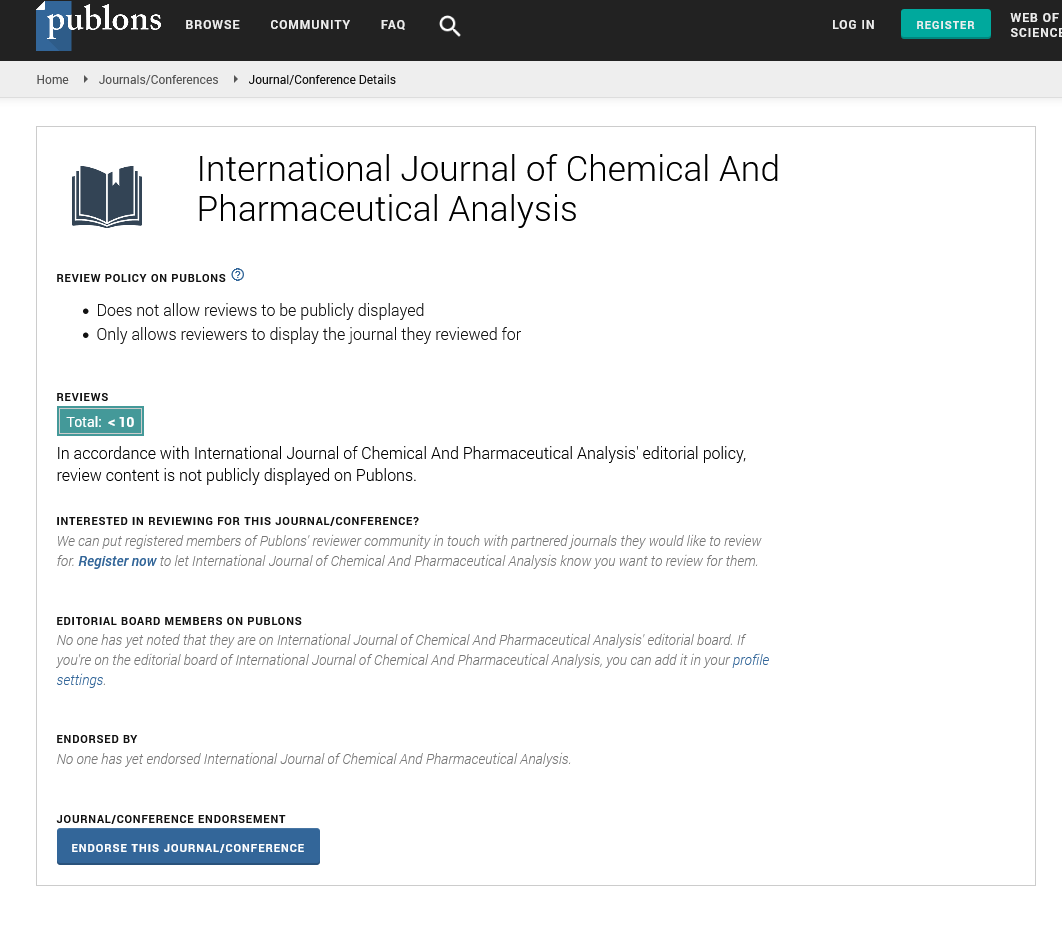Abstract
Author(s): Chandran Stella Packiam, Robert Jothibai Margret and Vaidyanathapuram Kesavan Meenakshi
Liver toxicity is a major worldwide health problem. In recent years, in spite of tremendous scientific development in the field of hepatology, liver troubles are on rise. Jaundice and hepatitis are the most widespread and major hepatic disorders that account for high death rate. The protective effect of the ethanolic extract of Ascidia sydneiensis on carbon tetrachloride induced hepatic injury in male Wistar albino rats was assessed. Initial, final body weight, serum biochemical parameters (protein, albumin, globulin, A/G ratio, SGPT, SGOT, ALP), total, conjugated and unconjugated bilirubin, GGT and the level of antioxidant enzymes in plasma (LPO, GPX, GRD, SOD, CAT, GSH) were analysed following standard procedures. Histopathological evaluation of liver sections was also done. Effect of the extract at a dose of 50, 100 and 150 mg/kg bw was compared with control and standard drug Silymarin (100 mg/kg bw). Significant decrease in serum enzymes (SGPT, SGOT and ALP), total conjugated and unconjugated bilirubin, GGT and lipid peroxide was noted on treatment with the extract compared to group II. Body weight, Serum biochemical parameters (protein, albumin, globulin) and antioxidant enzymes (GPX, GRD, SOD, CAT, GSH) showed a significant increase. Treatment with Ascidia sydneiensis altered the above parameters to levels near to that of normal. The results revealed a dose dependent hepatoprotective effect with 150 mg/kg body weight possessing significant activity without any toxicity on liver. Histopathological studies also confirmed the protective nature of the extract on liver tissue. The present investigation demonstrates the hepatoprotective property of Ascidia sydneiensis and thus scientifically supports the usage of this marine species in various medicine preparations for treatment of liver disorders.




